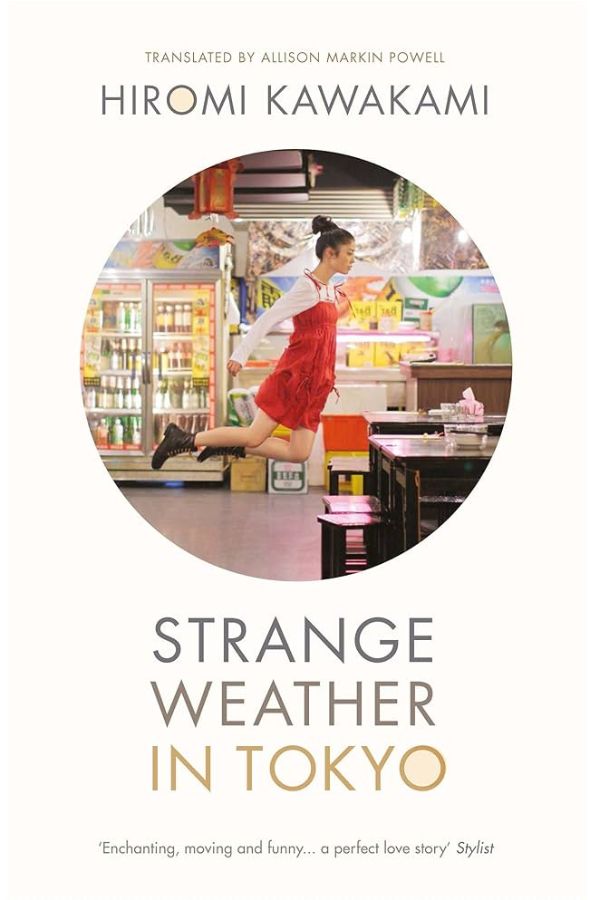A tender, strange, and relatively short novella that explores love, age, and weirdness that forms our many life-long relationships.
Following the lonesome and somewhat gloomy Tsukiko in her thirties, Strange Weather in Tokyo focuses on her deepening, almost-taboo and socially unacceptable relationship with the elderly Mr Matsumoto—nicknamed ‘Sensei’—who taught her Japanese in high school.
In today’s hostile and very politically-correct world, a novel focusing on the formation of a romantic relationship between two adults who are over thirty years apart, with one having been a child when they first met, seems perverse. I’ll admit, it is a slightly troubled premise, but the wit and amusing amount of tension that Kawakami blends into her story sells it and eases these barriers.
Mr Matsumoto is both an endearing and sympathetic character, and Tsukiko possesses her own pains and qualms with life. Neither are one-note, but generally have different attitudes and views, making them a chalk and cheese pairing in most scenarios.
With this in mind, the main appeal of the story is witnessing the push and pull of their relationship. It is about seeing which of the two will press on the boundaries of their bond and what such pressure may lead to, or if they will simply settle for a platonic relationship.
The old man is definitely the more interesting of the two, but it is Tsukiko’s deviation from the normal expectancy of a woman being friendly, polite, and eager to work that helps her stand out as a narrator—including how she feels little-to-no allure for another man she also went to high school with, despite him being positioned as a much more forward and suitable choice of partner.
I would not suggest that Strange Weather in Tokyo is a must-read novel. It is weird, it is short, and it is lacking in intricacies. But the peppered exploration of the characters’ backstories, as well as the slow burn of their relationship in tandem with its odd circumstances (notably the difference in age), make it engaging enough to be a solid read. Besides, it’s not overly lengthy and contains an equal amount of light-hearted moments to match its more sombre dips, so it should have a little bit for every type of romance reader. A generic review for a somewhat generic novel, I suppose.

Leave a Reply